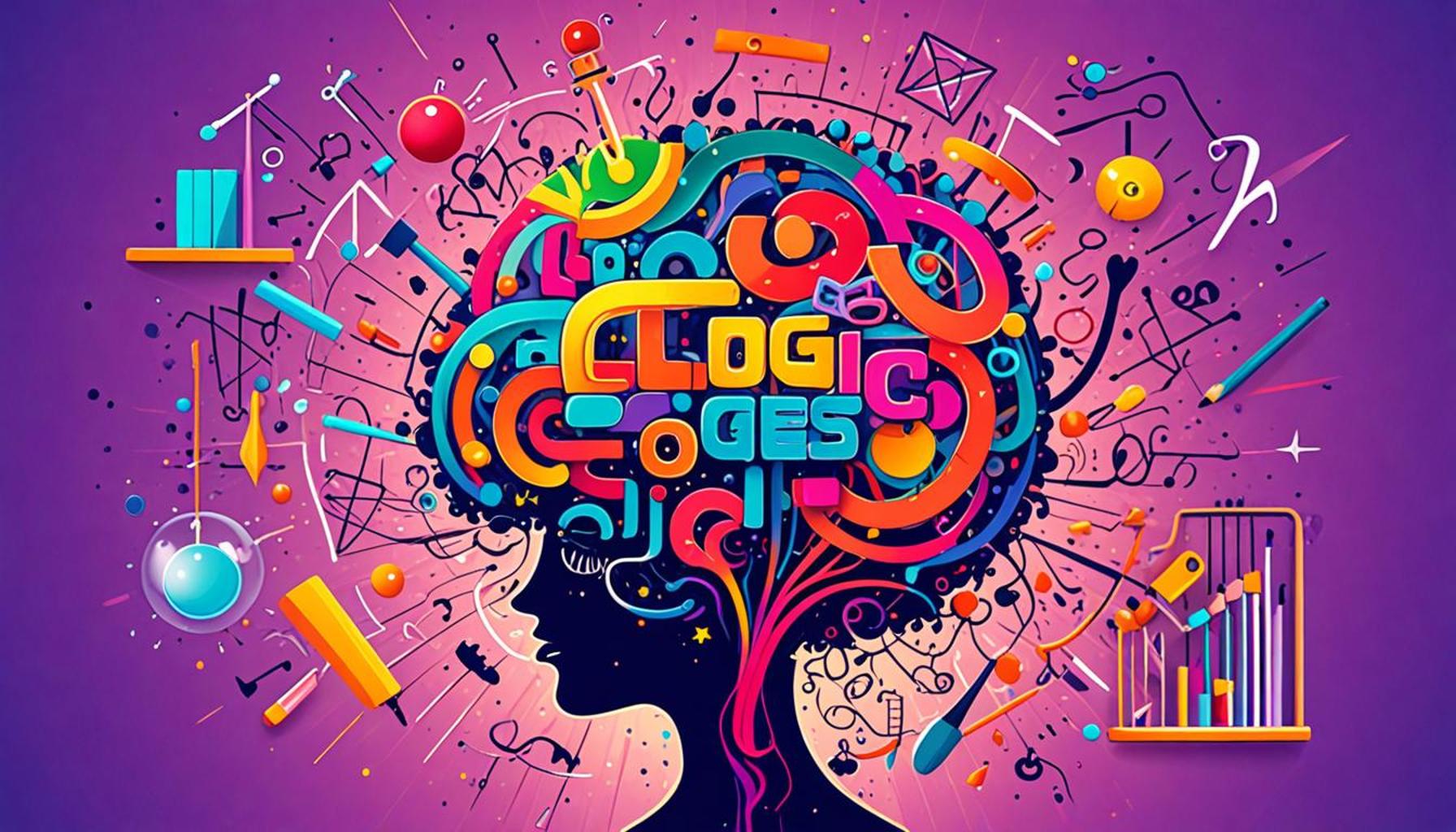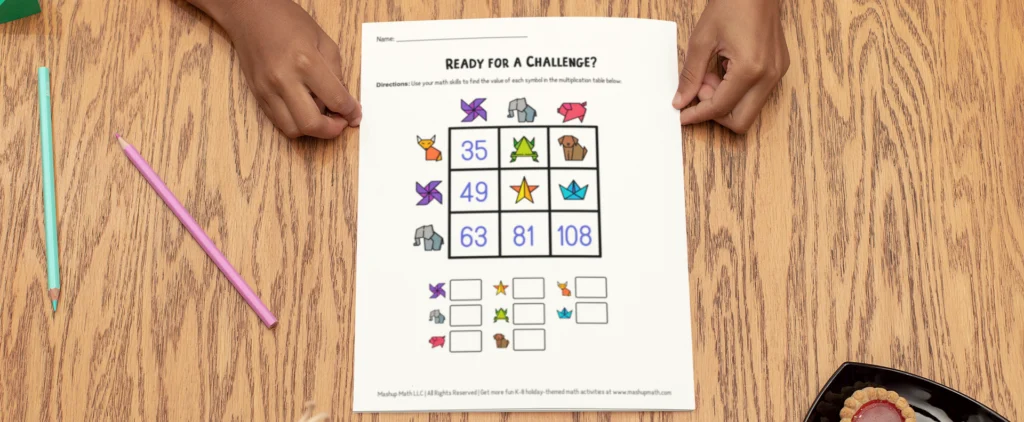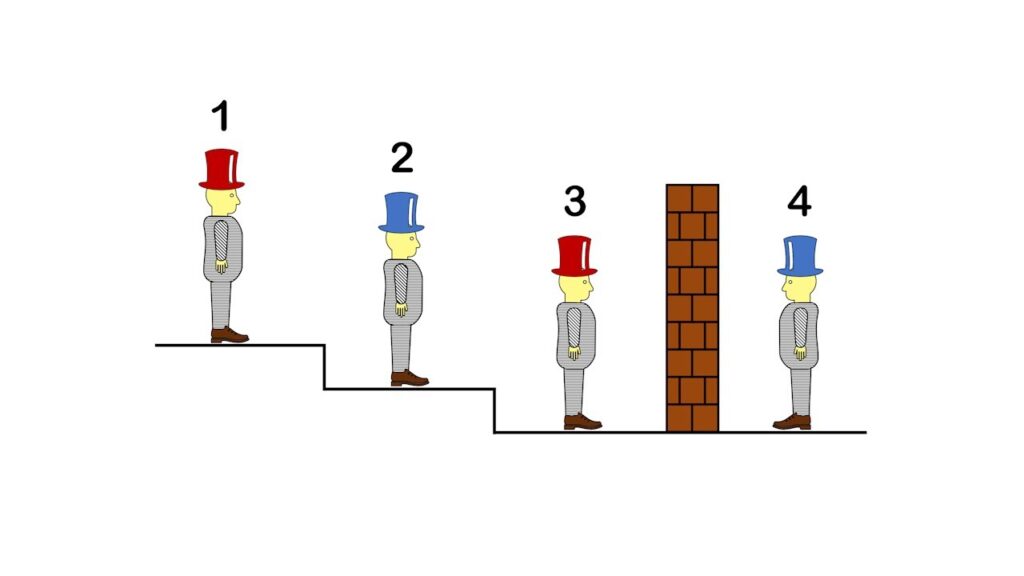Logical Challenges Explained Understanding How They Work

The Significance of Logical Challenges in Everyday Life
In today’s information-rich environment, enhancing our reasoning skills has never been more crucial. Logical challenges, often disguised as entertaining puzzles, play a vital role in honing our critical thinking and problem-solving competencies. As we engage with these challenges, we not only exercise our minds but also gain intriguing insights into our cognitive processes, enabling us to understand how we think and make decisions.
Logical challenges come in a wide array of forms, each presenting a distinctive opportunity to engage our intellect. Some popular types include:
- Riddles: These are concise questions or statements that often lead to unexpected answers, such as, “What has keys but can’t open locks?” (Answer: A piano.) Riddles stimulate lateral thinking, encouraging us to look beyond the obvious.
- Logic Puzzles: These puzzles typically involve a set of conditions and require deductive reasoning to arrive at a solution. For example, solving a logic grid puzzle where you determine who lives in which house based on a series of clues can improve analytical skills.
- Brain Teasers: Often characterized by their quick and tricky nature, brain teasers challenge our reflexive thinking. An example is the classic: “If a rooster lays an egg on top of a barn roof, which way does it roll?” (Answer: Roosters don’t lay eggs.)
The benefits of engaging with these challenges extend far beyond mere entertainment. They foster practical skills applicable in various aspects of life, such as:
- Enhancing decision-making skills in personal and professional settings, leading to more effective problem resolution amidst complex scenarios.
- Improving academic performance through better analytical abilities; students who regularly engage with logical challenges often display superior reasoning skills in exams and academic discussions.
- Fostering teamwork and collaboration during group problem-solving tasks, which can enhance communication skills and build camaraderie among team members.
Delving into the mechanics of logical challenges reveals a treasure trove of cognitive benefits. Research has shown that regularly engaging with these puzzles can stimulate brain function, boost creativity, and foster innovation. They prompt individuals to think outside the box, leading to novel solutions and ideas. Such skills are paramount in today’s world, where adaptive thinking is key to overcoming challenges, whether in business, education, or personal development.
The journey into the realm of logical challenges is not just about solving puzzles; it is about unlocking the potential of our minds. For those eager to explore further, various resources, including books, online platforms, and apps dedicated to logic puzzles, are readily available. As you embark on this intellectual adventure, you may find that the process of solving these challenges provides as much reward as the solutions themselves.


SEE ALSO: Click here to read another article
Decoding the Mechanics of Logical Challenges
To fully appreciate the value of logical challenges, it is necessary to decode their underlying mechanics. At their core, these challenges operate on the principles of reasoning, deduction, and inference. Participants are invited to draw connections, make assumptions, and test their hypotheses in a playful yet intellectually stimulating manner. Engaging with these puzzles functions as both a mental workout and a foray into the art of reasoning.
One of the key elements in the design of logical challenges is the use of structured scenarios. These scenarios present specific conditions and parameters that guide problem solvers toward a resolution. Consider logic grid puzzles, where you may need to determine which animals belong to specific owners based on a set of clues. Here, participants must recognize patterns, eliminate impossibilities, and draw logical conclusions—skills that are transferable to real-life situations, from workplace decision-making to everyday problem-solving.
Moreover, understanding the various types of logical challenges can enhance one’s approach to them. Here is a closer look at different kinds of puzzles that exemplify how these challenges work:
- Deductive Logic Challenges: These require players to start with overarching premises and draw specific conclusions. For instance, “All humans are mortal. Socrates is a human. Therefore, Socrates is mortal.” These challenges sharpen analytical reasoning and improve clarity in thought.
- Inductive Logic Challenges: Unlike deductive reasoning, this type involves formulating generalizations based on specific examples. A classic example is observing that the sun has risen in the east every day of your life and concluding it will likely do so tomorrow. It’s an essential skill for forecasting and innovative thinking.
- Conditional Logic Challenges: Often framed with “if-then” statements, these challenges focus on conditional reasoning. An example might be: “If it rains tomorrow, the picnic will be canceled; if it does not rain, the picnic will proceed.” These types sharpen the ability to navigate standard procedures and consequences in various scenarios.
Each of these logical challenge types trains the brain in different ways, promoting versatile thinking capabilities. Research suggests that as we navigate through these challenges, our brains create new neural pathways, enhancing cognitive flexibility. This is particularly important as we navigate an increasingly complex world filled with information overload. The capacity to analyze, synthesize, and evaluate is invaluable and empowers individuals to handle unfamiliar situations with greater confidence.
Furthermore, engaging with logical challenges during our formative years shapes our cognitive landscape. Many educational institutions incorporate logic puzzles into their curricula, underscoring their importance in developing essential life skills. Students exposed to these challenges often demonstrate improved performance and greater adaptability in various academic pursuits. Understanding how these puzzles foster intellectual growth is the first step toward leveraging their full potential.
As we continue to explore logical challenges, it becomes evident that the rewards extend beyond mere amusement. The act of solving these puzzles equips us not only with practical skills but also with the confidence to tackle life’s uncertainties with a well-honed mindset.
| Advantages | Details |
|---|---|
| Enhanced Problem-Solving Skills | Engaging with logical challenges boosts analytical thinking and enhances decision-making abilities. |
| Improved Cognitive Function | Regular practice of logical reasoning exercises can lead to better memory and comprehension skills. |
| Engagement and Enjoyment | The fun nature of challenges keeps participants interested, making learning more engaging. |
| Collaborative Learning Opportunities | Working on challenges with others encourages teamwork and social interaction. |
Delving further into the essence of logical challenges, it becomes apparent that their role in cognitive development is profound. These puzzles not only serve as entertainment but also stimulate the mind, fostering a culture of critical thinking. Engaging with such challenges can assist individuals in various aspects of life, from academic pursuits to everyday decision-making processes. Moreover, the elements of competition and collaboration inherent in many logical challenges can be beneficial. They encourage participants to push their limits, develop resilience, and adapt to new strategies swiftly. As such, understanding how these challenges work unveils their hidden educational potential, inviting enthusiasts to further explore their applications in both professional and personal realms.
CHECK OUT: Click here to explore more
Unpacking the Benefits of Engaging with Logic Puzzles
The allure of logical challenges extends well beyond their intricate designs; they offer a multitude of benefits that enhance our cognitive landscape. Engaging with these puzzles can stimulate cognitive development in several key areas, fundamentally influencing problem-solving skills, decision-making abilities, and even emotional intelligence.
First and foremost, engaging with logical challenges enhances our problem-solving skills. Whether it’s a complex Sudoku puzzle or a tantalizing riddle, participants must employ critical thinking to navigate through layers of information. This analytical approach mirrors real-life situations where individuals must sift through facts to extract solutions. Research shows that people who regularly tackle logic problems become adept at breaking down complex issues into manageable components, fostering systematic thinking that is beneficial in both personal and professional realms.
Moreover, the psychological aspect of solving these puzzles fosters resilience and perseverance. Facing challenging logical problems requires a degree of grit. When individuals encounter hurdles—be it a particularly tricky riddle or an ambiguous clue—they learn to navigate frustration and persist until they uncover the solution. This is particularly meaningful in our fast-paced world, where quick resolutions are often demanded. Resilience cultivated through logical challenges can translate into a more robust ability to cope with life’s unpredictable demands.
Additionally, participation in logical challenges has been linked to improved decision-making skills. Engaging with these puzzles sharpens one’s ability to evaluate options critically. For instance, in conditional logic scenarios, decision-makers must weigh potential outcomes and consequences based on the information presented. By regularly practicing this type of reasoning, individuals enhance their capability to make informed choices in various life situations—from financial investments to career moves. One study highlighted that individuals who regularly solve logic puzzles exhibit greater control and improvement in their judgment accuracy over time.
Furthermore, logical challenges play a significant role in developing emotional intelligence. This aspect is often overlooked but is critical for success in interpersonal relationships. Solving puzzles traditionally requires a solitary focus, yet they can also encourage collaboration when done in groups. Many logic problems, especially team-based challenges, necessitate communication, patience, and empathy—all hallmarks of emotional intelligence. Working together to arrive at solutions promotes group cohesion and teaches participants how to value diverse perspectives, skills that are invaluable in both personal relationships and team environments.
In the digital age, the availability of online platforms and mobile applications designed specifically for logical challenges has made engaging with these puzzles more accessible than ever. Many platforms offer a variety of logical challenges tailored to different skill levels, enabling users to progress at their own pace while fostering a sense of achievement. Moreover, social media groups and forums have emerged, allowing puzzle enthusiasts to share strategies, tips, and experiences, further enriching the community surrounding logical challenges.
Ultimately, integrating logical challenges into our daily routine can yield a profound impact on cognitive skills while enhancing our approach to various life circumstances. The beauty of these puzzles lies not just in their capacity to entertain but in their potential to transform thoughts, strategies, and ultimately, the way we engage with the world around us.
CHECK OUT: Click here to explore more
Conclusion
In summary, the realm of logical challenges extends far beyond mere entertainment; it serves as a catalyst for enhancing a range of cognitive abilities that are essential in our daily lives. Engaging with these puzzles not only sharpens problem-solving skills and boosts decision-making capabilities, but it also cultivates perseverance and emotional intelligence. As individuals navigate the complexities of logic puzzles, they develop strategic thinking that applies to real-world scenarios—be it in professional environments, personal relationships, or even within everyday decision-making.
The growing accessibility of these puzzles through digital platforms has ushered in a new era, where enthusiasts can connect and share insights globally. This engagement fosters collaboration and community support, enriching the overall experience while providing an avenue for lifelong learning. For those seeking to enhance their cognitive abilities and emotional acuity, integrating logical challenges into their routine can yield significant rewards.
Ultimately, embracing the intricacies of logical challenges offers profound insights into how we think, communicate, and interact with the world. As we delve deeper into these puzzles, we not only sharpen our minds but also transform our perspectives, equipping ourselves with the tools necessary to navigate life’s diverse complexities. For anyone ready to embark on this intellectual journey, the path ahead is both exciting and enriching—inviting exploration and continual growth.
Related posts:
Classic Logical Challenges for Beginners Easy Examples to Start
Tips for Creating Personalized Logic Challenges at Home
Difference Between Mathematical Verbal Logic Challenges Explained
Boost Logical Reasoning Skills with Practical Challenge Techniques
Step-by-Step Guide to Solving Logical Challenges Easily
Boost Decision-Making Skills Quick Logic Exercises in Portuguese

Beatriz Johnson is a seasoned puzzle enthusiast and writer with a passion for unraveling the complexities of mind games and brain teasers. With over a decade of experience in the world of puzzles, she specializes in topics like logic games, riddles, and strategic challenges. Through her work, Beatriz empowers readers to sharpen their problem-solving skills, think creatively, and stay engaged in the ever-evolving landscape of mind games and puzzles.